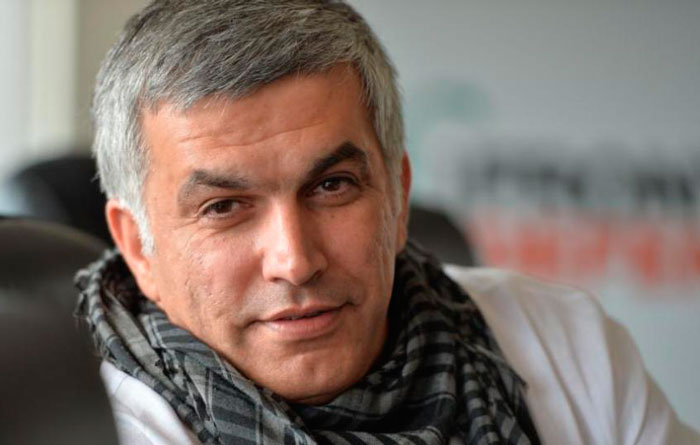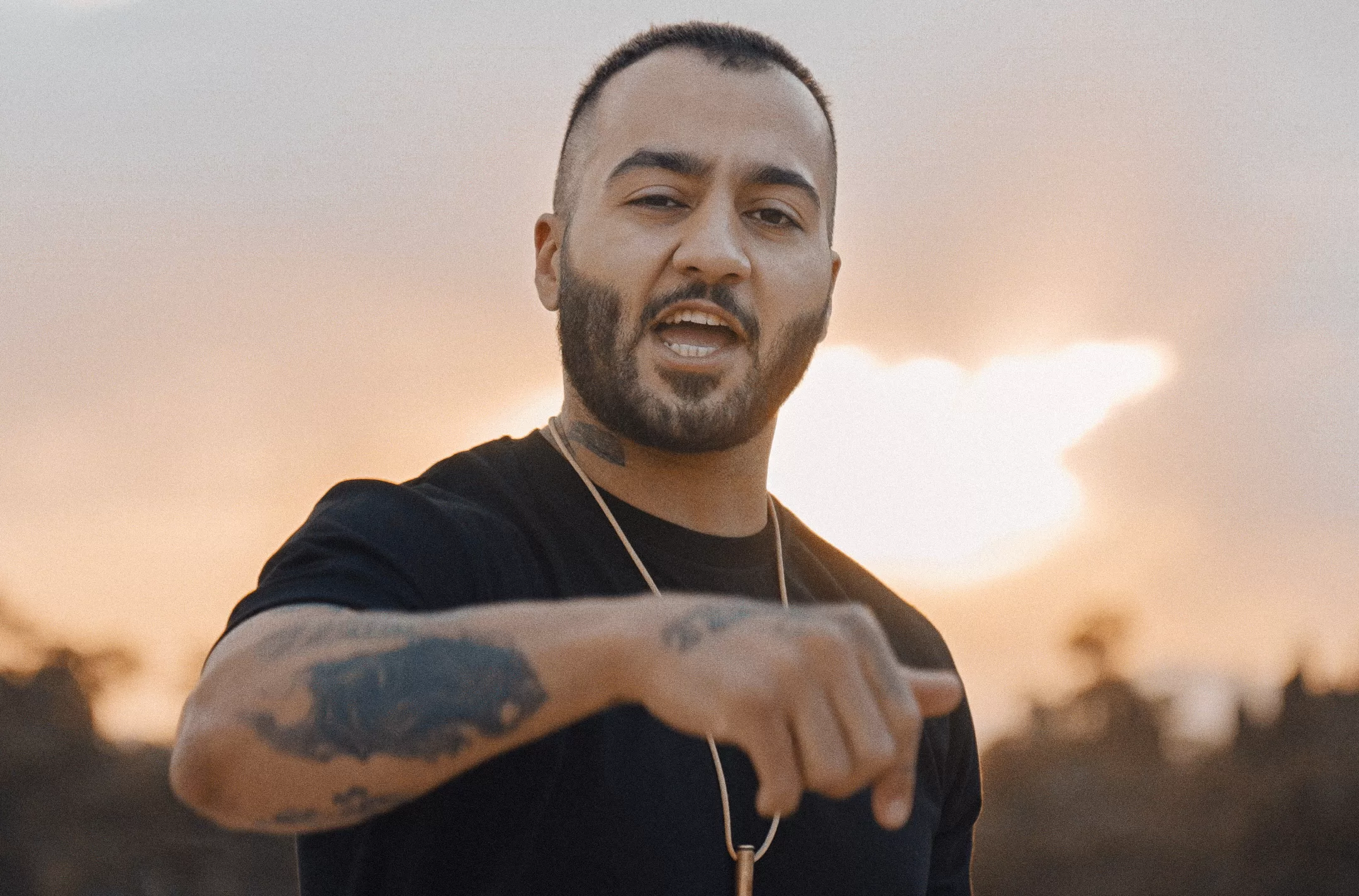[vc_row][vc_column][vc_single_image image=”95198″ img_size=”full” add_caption=”yes” alignment=”center”][vc_column_text]Bahrain’s Appeals Court convened in the second appeals hearing for Nabeel Rajab, who was sentenced to two years in July for speaking to journalists.
The Appeals Court heard a Ministry of Interior witness on 25 October. The proceedings were postponed to 8 November for the defence’s final arguments, according to a local pro-government paper. Rajab also faces a concurrent trial in which he faces up to 15 years in prison on charges related to his twitter profile. In all, Rajab faces up to 17 years in prison.
Sayed Ahmed Alwadaei, Director of Advocacy, Bahrain Institute for Rights and Democracy: “Nabeel Rajab’s sentence to two years is solely for speaking the truth and exposing the horrific violations in Bahrain. His imprisonment is a shameful evidence of Bahrain’s horrific human rights record and the UK’s shameful policy, which whitewashes the Al Khalifa monarchy’s brutality and intolerance.”
“The ongoing judicial harassment of Nabeel defies logic. This is a vindictive, punitive and politically-motivated process aimed at crushing a non-violent advocate of human rights for simply expressing his opinions on the state of Bahrain. We again call on the government of Bahrain to immediately and unconditionally release Nabeel. We urgently demand that the government of the UK raise the case with their counterparts,” Rachael Jolley, deputy CEO, Index on Censorship said.
The 2012 Index on Censorship Freedom of Expression Campaigning Award-winning Rajab is currently serving a two-year prison sentence. On 12 July, he was sentenced in absentia to two years in prison on charges of “spreading false news” under article 134 of Bahrain’s Penal Code. His appeal began in September.
The charges relate solely to TV interviews Rajab gave in 2014 and 2015. Without irony, prosecution papers from the criminal court proceedings, seen by BIRD, state that Rajab is being prosecuted for stating that the Bahraini government “derogates from freedom of opinion and of expression.” Bahrain’s prosecution has treated Rajab as a criminal for speech acts such as: “accusing the ruling system in the Kingdom of following a policy of repression” and of “arresting those opposed to the regime”; or alleging “the commission by responsible [government] bodies of crimes of killing and torture.” In the prosecution’s account Mr. Rajab has also made statements accusing the Bahraini government of “evasion of responsibility”; engaging in “sectarianism”; and “suppressing opposition and violating international agreements and covenants.”
Rajab was arrested on 13 June 2016 and has been detained ever since. He was held largely in solitary confinement in the first nine months of his detention, violating the UN Standard Minimum Rules for Non-Custodial Measures (Tokyo Rules) which state: “pre-trial detention shall be used as a means of last resort in criminal proceedings, with due regard for the investigation of the alleged offence and for the protection of society and the victim.”
In early April 2017, Rajab was admitted to the Bahrain Defence Force hospital for a necessary surgery. He was transferred back to police custody just a day later, before having recovered from his operation, and his health deteriorated significantly; from there he was transferred to the Ministry of Interior Clinic (Al-Qalaa), where he remains to date. Between April and August 2017, Rajab was unable to attend court, which held numerous hearings in his absence, including his sentencing.
Rajab faces a concurrent trial in which he faces up to 15 years in prison on charges related to his tweets exposing torture in a Bahraini prison and criticising the humanitarian cost of the war in Yemen. In September 2017, a new set of charges were brought against Rajab related to social media posts made in January 2017, when he was already in detention and without internet access. Rajab also faces a fourth set of charges related to a letter he penned to the New York Times in September 2016.
The UN Committee Against Torture has called for Rajab’s release.
The UK’s Middle East Minister Alistair Burt was , where he met with senior officials and expressed support for the government’s reform programme – a programme which only Bahrain and the UK claim exists. He said “The UK will continue to support Bahrain to deliver its ambitious reform initiatives, with a particular focus on rule of law and human rights.”
In the US, the Trump Administration this year removed Obama-era human Rights conditions on arms sales, one of which was the unconditional release of Rajab. In September, the Trump Administration approved the sale of F-16 jets worth $2.78 billion.
Husain Abdulla, Executive Director, Americans for Democracy & Human Riggs in Bahrain: “Trump’s policy in Bahrain and the Gulf is a threat to regional stability. Rewarding Bahrain’s human rights abusing rulers with fighter jets to be deployed in Yemen, after they imprison Nabeel Rajab, who has criticised that war, is disastrous decision making. It tells you everything you need to know about the US’s commitments to protecting human rights defenders.”[/vc_column_text][/vc_column][/vc_row][vc_row][vc_column][vc_basic_grid post_type=”post” max_items=”12″ style=”load-more” items_per_page=”4″ element_width=”6″ grid_id=”vc_gid:1508927761300-582e12d5-6484-10″ taxonomies=”3368″][/vc_column][/vc_row]






